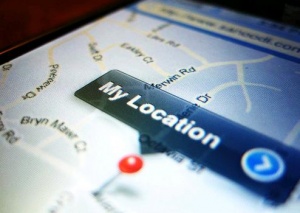Difference between revisions of "Smartphones (Location Services)"
From SI410
| Line 58: | Line 58: | ||
[[Category: Information Ethics]] | [[Category: Information Ethics]] | ||
[[Category: Citations Needed]] | [[Category: Citations Needed]] | ||
| + | |||
{|class="wikitable" align="left" border="1" | {|class="wikitable" align="left" border="1" | ||
|style="padding-left: 1em; padding-right: 1em" | ←''[[{{{1|{{{1|}}}Topics}}}|Back]]'' • ↑''[[#top|Top of Page]]'' | |style="padding-left: 1em; padding-right: 1em" | ←''[[{{{1|{{{1|}}}Topics}}}|Back]]'' • ↑''[[#top|Top of Page]]'' | ||
|} {{Section|||#BOTTOM}} | |} {{Section|||#BOTTOM}} | ||
Revision as of 15:40, 11 February 2016
L
ocation Services introduction/summary goes here:
- High stability and low entropy of human physical movement
- Issues: default settings (opt-out rather than opt-in), user ignorance, permissions and security, excessive and unnecessary privileges between OS and apps
Contents
Background and History
Development of capable technology:
- multilateration - location determination via cell phone signal triangulation; uses the variation in the reception of signal bounce-back to determine relative position[1]
- When was the first smartphone manufactured with GPS facilities?[citation needed]
Stakeholders
- Smartphone users
- Mobile phone carriers
- Software developers
- Advertising/marketing firms and the businesses they serve
Notable Cases
From popular culture, etc.
Legislation
To protect consumers/minimize risk/for convenience (Apple's "Find My Friends" app)
Policy
How major brands vary (iOS, Android, Windows Phone)
Ethical Implications
- In the workplace
- Personal life (family, friends)
External Links
See Also
References
- ↑ Sample footnote
| ←Back • ↑Top of Page |
